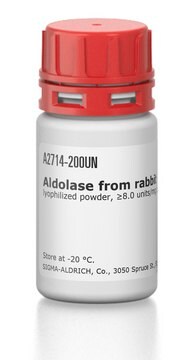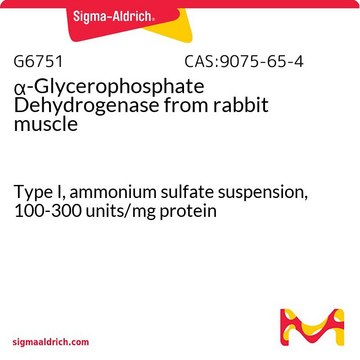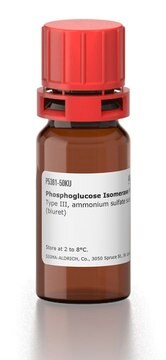T2391
Triosephosphate Isomerase from rabbit muscle
Type III-S, ammonium sulfate suspension, ≥4,000 units/mg protein
Synonym(s):
D-Glyceraldehyde-3-phosphate ketol-isomerase, TPI
About This Item
Recommended Products
biological source
rabbit muscle
Quality Level
type
Type III-S
form
ammonium sulfate suspension
specific activity
≥4,000 units/mg protein
mol wt
calculated mol wt 53.2 kDa
foreign activity
3-phosphoglyceric phosphokinase ≤0.01%
glyceraldehyde-3-phosphate dehydrogenase ≤0.01%
pyruvate kinase, lactic dehydrogenase, phosphoglucose isomerase, α-glycerophosphate dehydrogenase and aldolase ≤0.001%
storage temp.
2-8°C
Looking for similar products? Visit Product Comparison Guide
Related Categories
Application
Unit Definition
Physical form
Analysis Note
Storage Class Code
12 - Non Combustible Liquids
WGK
WGK 2
Flash Point(F)
Not applicable
Flash Point(C)
Not applicable
Personal Protective Equipment
Certificates of Analysis (COA)
Search for Certificates of Analysis (COA) by entering the products Lot/Batch Number. Lot and Batch Numbers can be found on a product’s label following the words ‘Lot’ or ‘Batch’.
Already Own This Product?
Find documentation for the products that you have recently purchased in the Document Library.
Customers Also Viewed
Articles
Instructions for working with enzymes supplied as ammonium sulfate suspensions
Our team of scientists has experience in all areas of research including Life Science, Material Science, Chemical Synthesis, Chromatography, Analytical and many others.
Contact Technical Service












